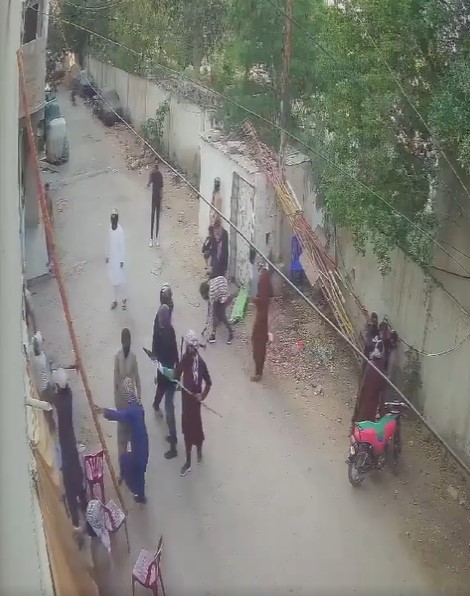In a deeply unsettling incident, unknown assailants targeted an Ahmadiyya mosque in the Dastgir area of Karachi. The attackers reportedly chanted slogans against the Ahmadiyya community during the assault, heightening concerns about the safety and security of this religious minority in Pakistan.
The Ahmadiyyas, who played a pivotal role in the propagation of the idea of an Islamic nation named Pakistan during the partition, now find themselves marginalized in the same country they helped shape. Despite their historical contributions, the Ahmadiyya community faces widespread discrimination, with many muslims in Pakistan not recognizing them as fellow Muslims. This exclusion is further exacerbated by the existence of legislation that explicitly declares them non-Muslims.
Why Ahmadiyyas are not considered Muslims in Pakistan?
Notably, the Ahmadiyya muslim community is a sect within Islam founded by Mirza Ghulam Ahmad in the late 19th century. While it keeps faith in almost all Islamic tenets, few contradictions have become reason for their eviction from mainstream Islam.
As per Islam, Prophet Muhammad is the last prophet with Quran being the last religiously text. However, Ahmadiyyas believe Muhammad of being prophet but not the last. According to them, Mirza Ghulam Ahmad was the last prophet, often referred to by the followers as promises Mahdi or Messiah awaited by Muslims.
Apparently, every religion has followers with diverse beliefs and faiths, but the escalation of animosity is a threat to the peace and tranquility in the society.
In 1974, the Pakistani establishment officially declared Ahmadiyyas as non-Muslims, setting the stage for more restrictive measures a decade later. In 1984, a law was passed in Pakistan’s parliament that not only designated Ahmadiyyas as non-Muslims but also prohibited them from identifying themselves as Muslims. The legislation went so far as to deny them the right to construct mosques with minarets, elements considered essential to Islamic architecture.
As a result of these discriminatory measures, number of Ahmadiyya mosques have frequently become targets of attacks. The latest incident, captured on CCTV cameras, has sent shockwaves through the community, raising concerns about their very existence in Pakistan.
The violence on the worship place, leaving the Ahmadiyya community members in a state of fear and vulnerability. The assault is seen as not just an isolated incident but part of a broader pattern of persecution faced by the Ahmadiyya community in Pakistan.

